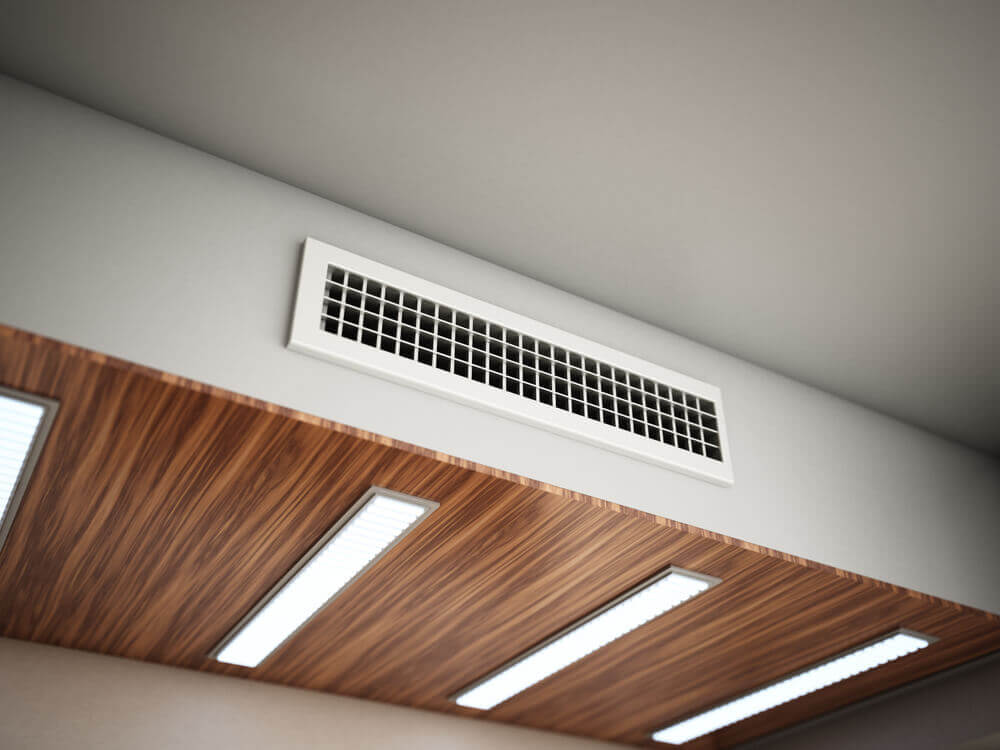
The indoor air quality of a hotel is not limited to the comfort of guest rooms. Floor corridors, common areas, staff routes, and lobbies play a critical role in the overall operation of the ventilation system.
However, in many hotels, corridors are considered “passive areas” and are often neglected in HVAC system design.
Is this approach correct?
No. Insufficient air circulation and low fresh air ratios on hotel floors can cause:
-
Odor complaints
-
Fire safety vulnerabilities
-
Health risks
-
Imbalanced HVAC operation
1. Corridors Act as the Hotel’s Lungs
Floor corridors are closed, often windowless spaces that lead to guest rooms. Air quality in these areas depends on:
-
Airflow in and out of rooms
-
Air coming from elevators, laundry, and service areas
-
Opening and closing of room doors
In other words, if air circulation in corridors is poor, odors, dust, humidity, and carbon dioxide can spread into guest rooms.
2. Stagnant Air Carries Odors – Leading to Complaints
Without sufficient airflow in corridors:
-
Cooking, smoke, or bathroom odors from rooms spread to corridors
-
The feeling of stuffy air increases
-
Corridor carpets and wall coverings absorb odors
-
Guests eventually encounter heavy odors when leaving their rooms
Typical reviews might read:
“The room was nice, but the corridor smelled bad when I stepped out.”
“The corridor air was suffocating, and it even affected the room.”
These small details significantly affect hotel ratings.
3. What Happens When CO₂ and VOC Levels Rise?
If corridors only recirculate indoor air without fresh air intake:
-
CO₂ (carbon dioxide) levels increase
-
VOCs (volatile organic compounds) accumulate
-
Oxygen levels decrease
-
Guests may experience fatigue, weakness, and headaches
This is particularly problematic for elderly, asthmatic, or sensitive guests.
Ideal CO₂ level: below 800 ppm. In some older hotels, this can rise to 1500–2000 ppm.
4. Fresh Air Ratio: How Much Is Needed?
The recommended minimum outdoor air ratio for hotel corridors is generally 10–15 m³ per person per hour. Many hotels either do not calculate this or fail to implement it practically.
Recommended fresh air solutions for hotel floors:
-
Supply of fresh air from the central air handling unit
-
Independent air supply fans on each floor
-
Energy recovery ventilators (ERV)
-
CO₂ sensor-controlled variable-speed fan systems
-
Air circulation that maintains positive pressure in corridors
5. Floor Air Control for Fire Safety
Air circulation is not only about comfort but also vital for safety.
-
Negative pressure in corridors can pull smoke into rooms during a fire
-
Positive pressure systems prevent smoke spread
-
Fresh air inlets facilitate smoke extraction after a fire
Thus, each floor should have:
-
Fire-resistant ductwork
-
Fan control for emergency scenarios
-
Airflow management via fire dampers
6. Odor Removal and Filtration on Hotel Floors
Air on hotel floors must also be filtered. Not only fresh air but also recirculated indoor air should pass through odor-removing filters:
| Filter Type | Function | Application |
|---|---|---|
| Activated Carbon Filter | Odor and gas removal | Fresh air units, circulation fans |
| G4 / M5 Filter | Dust and fiber capture | Pre-filter |
| HEPA Filter (optional) | Allergen removal | Health rooms, special floors |
| Ozone Filter | Odor and microorganism removal | All enclosed areas |
Extra: Low-level UV-C air purification units can also be used in corridors.
7. Five Practical Tips to Improve Air Circulation on Hotel Floors
-
Measure floor air: monitor CO₂, temperature, and humidity regularly
-
Check air inlet and outlet balance: ensure exhaust exists if supply is present
-
Use separate ventilation for service areas: laundry and kitchen odors should not enter corridors
-
Maintain positive pressure: ensure corridor air is fresh and strong to prevent odors from entering from rooms
-
Perform periodic maintenance: change all filters on time and clean ductwork
Invisible but Perceptible Quality
Guests pass through corridors before reaching their rooms. The air quality at that moment shapes their first impression. No matter how luxurious the room is, guests passing through a stuffy corridor will form an opinion.
Clean, odor-free, and properly pressurized floor air is a quiet but powerful indicator of comfort.
Remember: Quality air is invisible but unforgettable.
İlker KURAN
Alperen Mühendislik Ltd. Şti.







